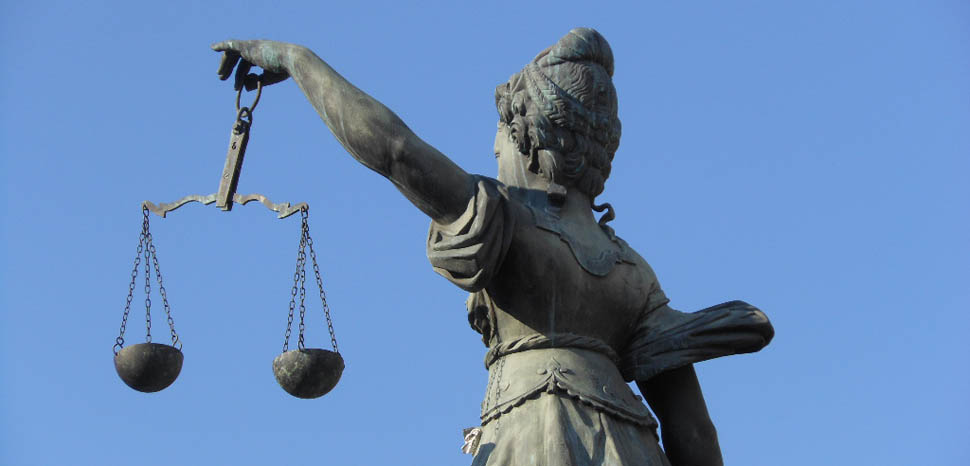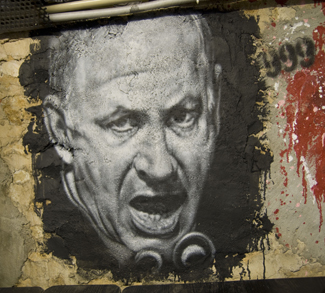Recently, the US for the first time voted against an annual UN resolution condemning Israel’s occupation of the Golan Heights, dropping its past practice of abstaining in the vote. Roundly ignoring two other glaring precedents – the UNSC and International Court of Justice (ICJ) prohibition of Israeli construction on Palestinian-occupied territories and UN condemnation of India’s human rights atrocities in IOK – both Tel Aviv and New Delhi continue to commit violations in Palestine and Kashmir.
It’s obvious that the world community today faces multiple challenges in discharging its role toward global justice governance. The crucial challenge in the domain of International law is to rightly impart its role via institutional capability, capacity, and authority thereby overcoming the main flaws that undermine global justice and the human rights order. The truth is that the international law regime is institutionally immature because of political intervention by superpowers.
States created the UN and its Security Council to help to ensure the global public good of international peace and security. The most salient challenge internationally is that we lack legitimate, centralized institutions with general taxing and regulatory powers. We thus have traditionally depended on cooperation between nation states involving decentralized forms of implementation and enforcement to advance collective goals. International law facilitates this cooperation by creating international institutions and common norms and rules, thereby reducing transaction, monitoring, and enforcement costs and building shared understandings.
One reason for the Security Council’s failure in bringing about a permanent resolution to the Kashmir conflict is the Council’s view of the conflict as being political rather than legal. From the beginning, the Security Council framed the problem as primarily a political dispute rather than looking into a major legal underpinning of the dispute: the Instrument of Accession’s validity or lack thereof.
The Security Council, unlike the International Court of Justice (ICJ), often deals with dispute resolution in a political mode and does not have the capacity to adjudicate on purely legal terms. Nevertheless, the Kashmir dispute represents a situation where the Security Council could have given a stronger voice and stiffer backbone to its binding recommendations by taking a “quasi-judicial” stance and referring to the legal basis of the conflict. But, in its side-stepping of overt references to the Instrument of Accession that lies at the center of the legal dispute over Kashmir, the Security Council could not give a forceful rationale for its two-pronged recommendations, which ultimately weakened its strategy for a permanent solution.
Undeniably, the same political and legal failures cloud the fate of the Palestinians. The crux of the debate over the recognition of Jerusalem is the legal status of Jerusalem. The US stated in a letter of assurance sent to the Palestinians during the 1991 Madrid Peace Conference that the status of Jerusalem should be determined through multilateral negotiations. The recent recognition by Washington is inconsistent with this pledge, as it prejudges and predetermines the status of Jerusalem, and arguably violates the basic right of Palestinians to self-determination. It also recognizes the illegal and unilateral annexation of East Jerusalem in 1967.
As for the ICJ’s functionality, it has been more assertive in reviewing the actions of some UN organs and specialized agencies, particularly under its advisory jurisdiction. Some of its most specific statements on procedural principles of global administrative law have come in its extensive jurisprudence, reviewing decisions of the United Nations Administrative Tribunal and similar bodies; for example, its interpretations of obligations of such tribunals to state reasons. More dramatic are cases in which the ICJ considers whether an IO has acted out with its competence, as in its (limited) consideration of the UN Security Council. The International Court of Justice in its advisory opinion in July 2004 clearly rejected the Israeli assertion to make a security fence on the pretext of defending Israel’s security. Recently, the UN has called on Israel to allow the Bedouin to remain on the Palestinian land in Khan al-Ahmar, where about 180 people live in shacks between two Jewish settlements, saying such demolitions are against international law. But Israeli authorities are constantly threatening the residents with demolition of the Bedouin hamlets. Here we find a gap between global administrative law and its institutional functionaries.
The ICJ ruled that the UN General Assembly had ‘power to make regulations, but not power to adjudicate on, or otherwise deal with, particular instances.’ A threefold categorization is implied here: law-making, adjudication, and administration. One distinction is between making regulations and adjudicating particular instances; this aligns with the sharp contrast drawn in many national legal systems between legislation and adjudication (so that in these systems a judicial decision, which applies to a single instance, is not legislative – it is not a formal source of law.) A second distinction is between making regulations (legislating) and dealing non-judicially with particular instances (administration). This classificatory structure thus divides the general (legislation) from the special (dealing with particular instances by way of adjudication or administration.)
One of the tools available to the Council to peacefully settle international disputes affecting international peace and security is to make use of the ICJ’s jurisdiction in such cases (Article 36 (3) of the UN Charter) or to ask it to provide advisory opinions on legal questions that arise in the Council’s work (Article 96 (1)). At the same time, the Charter also gives the Council responsibility for addressing instances of non-compliance by states with the Court’s judgments brought before the Council (Article 94 (2)).
In this context, resolving both the Palestinian and Kashmiri problems requires that the concept of international law is institutionally strong enough to fulfill its purposes and objectives – of global law ensuring justice – which is being hampered by power politics. The potential usefulness of the ICJ to the work of the Council should not be overlooked, and interaction with the Court, as envisioned by the UN Charter, could regularly be considered. A more prominent role for the Court with respect to the Security Council’s work, whether on the Council’s initiative or otherwise, would likely strengthen the effectiveness and enhance the legitimacy of the Council as an institution.
The opinions, beliefs, and viewpoints expressed by the authors are theirs alone and don’t reflect the official position of Geopoliticalmonitor.com or any other institution.




